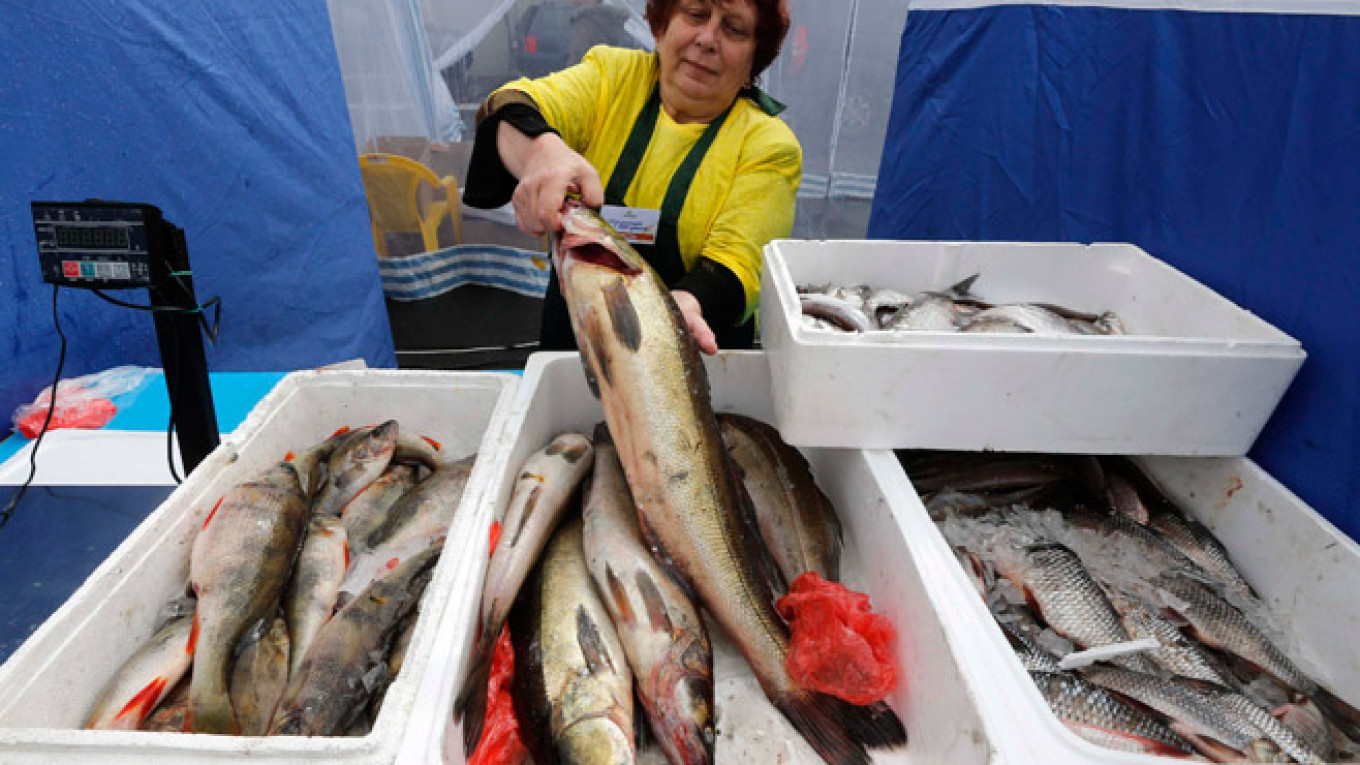Mikhail Zub, the long-standing head of a privately owned fish processing plant in the northern city of Murmansk, is one of a kind in Russia.
Russian businessmen tend not to get involved in political cases, especially those linked to the name of President Vladimir Putin, due to a fear that they could suffer the same treatment as Yukos founder Mikhail Khodorkovsky or opposition leader Alexei Navalny, both of whom have spent time in the dock or behind bars.
Zub did just that, however, when he challenged a government decree, signed by Putin in early August, that placed a one-year embargo on food products from countries that have imposed sanctions against Russia for its perceived role in the Ukraine crisis.
Norway, Russia's biggest salmon and herring supplier, was among those countries.
Zub filed a lawsuit at the Supreme Court, calling for the ban to be amended to allow the Murmansk Fish Factory to continue buying now-outlawed fish from Norway.
On Tuesday the court scheduled the hearing for Nov. 11.
"On the one hand, the fact of such a lawsuit in itself is an unprecedented phenomenon," Federation Council senator Konstantin Dobrynin was quoted as saying Tuesday by Interfax.
The lawsuit shows a positive trend — one where businessmen are not afraid to go against the government, Dobrynin added.
The food ban immediately resulted in price hikes for fish. The Russian Fish Company, one of the largest salmon distributors in the country, said last month that some producers' prices had almost doubled — going up to 600 rubles ($16) per kilogram — within a week of the ban going into force.
Zub said he is worried his business will be left sleeping with the fishes as there is no real alternative to Norwegian supplies. Chilean fish, for instance, are more expensive and come frozen, which makes them less suitable for further processing, while domestic production is unable to meet the demand, he said.
"We took out bank loans and fully modernized our factory last year, designed to process fresh fish coming from Norwegian waters. With a ban in place we have now stopped production," Mikhail Zub told The Moscow Times.
The factory employs just 280 workers, but if it had been working at full capacity, it could have had 1,500 staff. The factory is capable of producing 70,000 tons of processed fish products annually, almost double the output of all other producers in the Murmansk region.
Prior to filing the lawsuit, Zub exhausted all other means to get help from the government. He says his chances of winning the case, which was a last resort, are slim: "I am now considered a separatist, one who goes against a uniform government policy … but they would be better off turning their attention to the sad state the industry is currently in," he said.
Prime Minister Dmitry Medvedev said in an interview with business daily Vedomosti published Monday that the government had carefully examined the possible negative effects the ban would have on Russian business. "We should not harm our people, this was our first and main consideration," Medvedev said.
Medvedev also said that some further changes to restrictions could be made, as was the case with baby fish, which were excluded from the ban after the government discovered that domestic fish production could not be boosted without imported hatchlings.
Andrei Yakovlev, managing partner at law firm Yakovlev and Partners, said that by imposing the import ban the government had interfered in the business of Russian companies and their trade relations with international partners.
"The government is responsible for the damage dealt [to businesses] because of the decree," Yakovlev said, adding that similar instances of businesses suing the government both abroad and in Russia are not uncommon.
Yakovlev said, however, that the factory would have a better chance of winning damages sustained because of the ban, instead of trying to change the text of the decree itself.
Contact the author at a.panin@imedia.ru
A Message from The Moscow Times:
Dear readers,
We are facing unprecedented challenges. Russia's Prosecutor General's Office has designated The Moscow Times as an "undesirable" organization, criminalizing our work and putting our staff at risk of prosecution. This follows our earlier unjust labeling as a "foreign agent."
These actions are direct attempts to silence independent journalism in Russia. The authorities claim our work "discredits the decisions of the Russian leadership." We see things differently: we strive to provide accurate, unbiased reporting on Russia.
We, the journalists of The Moscow Times, refuse to be silenced. But to continue our work, we need your help.
Your support, no matter how small, makes a world of difference. If you can, please support us monthly starting from just $2. It's quick to set up, and every contribution makes a significant impact.
By supporting The Moscow Times, you're defending open, independent journalism in the face of repression. Thank you for standing with us.
Remind me later.


